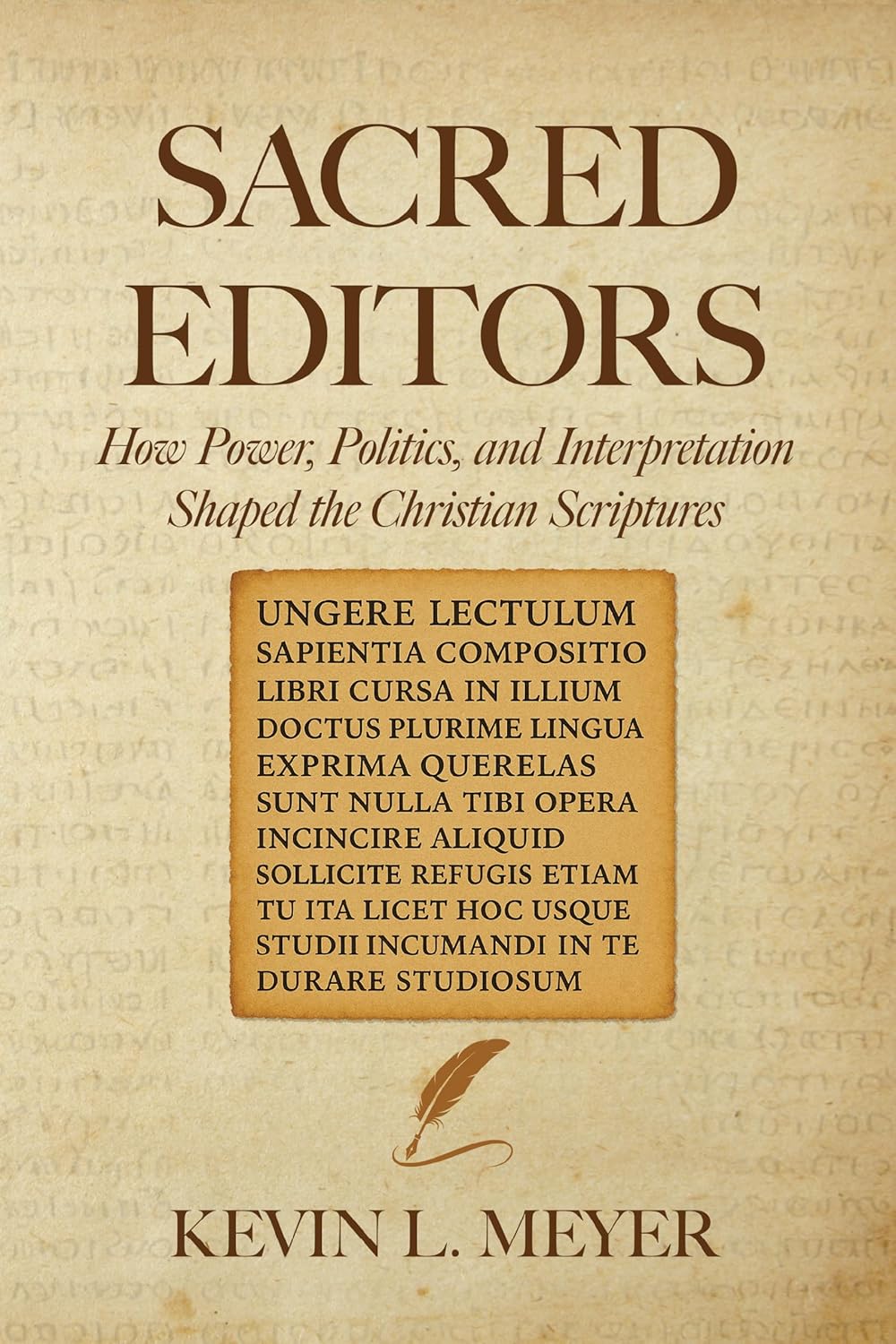Prologue: Who Edits God?

This chapter is part of the book The Sacred Editors: Christianity.
"In the beginning, there was... a mess."
A swirling flood of texts, gospels, letters, visions, and teachings. There was no canon—no fixed, authoritative collection of sacred books—no pope, no central authority to decide what was sacred or true. Just a chaotic, vibrant mix of stories, doctrines, and competing beliefs that eventually coalesced into what we now call the Bible.
Picture the second century of the Common Era: Christians in Rome might read the Gospel of Matthew alongside the Shepherd of Hermas. Syrian Christians could encounter Jesus through Tatian's Diatessaron, a harmony that wove all four Gospels into a single narrative. Ethiopian believers treasured books that Greek Christians had never heard of. Armenian communities preserved letters that Roman bishops considered suspect. There was no universal agreement about which texts belonged in Christian Scripture, and the eventual decisions about what made it into the canon were far from simple or universally embraced.
In the early centuries of Christianity, the Bible was not a single, unified text but a constantly evolving collection of writings—some widely accepted, others fiercely contested. The Gospel of Thomas circulated alongside Matthew and Luke. First Clement was read in worship services. The Book of Revelation was too controversial for some communities and too beloved by others to ignore. These decisions about inclusion and exclusion were driven by debates over theology, politics, and power—power that shifted across empires, church councils, and kingdoms from Constantine's Rome to medieval monasteries to Reformation printing houses.
Some texts were lost to history, either deliberately excluded or simply forgotten in the shuffle of centuries, only to be rediscovered in Egyptian sands or monastery libraries. Others were altered, edited, or omitted, depending on the theological needs of those copying them. Translation decisions—should the Hebrew almah become the Greek parthenos(virgin), and should that Greek word become the Latin virgo—shaped fundamental Christian doctrines about Jesus's birth. Each linguistic transition offered opportunities for meaning to shift, sometimes subtly, sometimes dramatically.
Scribes made choices. Bishops made choices. Emperors made choices. Some translations were crafted with careful intent, driven by sincere desire to preserve original meaning. Others bent to the pressures of their time, shaped to serve the political or theological interests of patrons and power structures. The Gospel of Peter disappeared from most Christian communities, but the Gospel of John flourished. Why? The answers involve not just spiritual discernment but also human politics, cultural preferences, and historical accidents.
From the earliest Christian communities gathering in house churches to the Council of Nicaea's imperial debates, from Augustine's influential writings to Gutenberg's revolutionary printing press, the Bible was crafted by human hands. Each generation left its mark on the text—sometimes preserving, sometimes revising, always interpreting what they received from those who came before.
And what of the divine in all this? Was God's voice somehow edited in the process? Was divine revelation truly subject to the decisions of those who wielded ecclesiastical power? Who really decides what is sacred, what is inspired, and what is canonical? Could the very human decisions that shaped the Bible—from its earliest fragments discovered in Egyptian papyri to its current form in countless translations—also be part of a larger divine plan unfolding through human history? When humans edit sacred texts, who edits God?
This is not a question that admits easy answers, but it is a question that demands to be asked. This book will explore the tangled web of power, politics, and theology that surrounds the Bible's formation. It will follow the story of how the text we read today was assembled through centuries of debate, translated across linguistic and cultural boundaries, and sometimes weaponized in service of competing visions of Christian truth.
The people who shaped it—from early church fathers like Athanasius and Jerome to medieval monks preserving manuscripts in scriptoriums to Protestant reformers like William Tyndale—did so believing they were preserving and transmitting divine revelation. But their decisions, often emerging from heated theological debates, cultural pressures, and political motivations, have had profound consequences for how billions of people understand Christianity today.
What we encounter in the Bible is not just a timeless, unchanging divine text that dropped from heaven fully formed. It is a living document, constantly in the process of interpretation, transmission, and translation. The words on the page, whether in ancient Hebrew, Koine Greek, ecclesiastical Latin, or modern English, reflect countless decisions made by generations of human beings grappling with the monumental task of preserving what they believed was the word of God.
As we explore this history, we might find ourselves wondering: What if the theological debates had taken different turns? What if the Council of Nicaea had reached different conclusions? What if the Gospel of Thomas had been included in the New Testament and the Book of Revelation excluded? What if different political powers had shaped early Christianity, or if the printing press had emerged in a different cultural context? How might alternative choices have changed not just the biblical text but the entire trajectory of Christian faith and practice?
The story of the Bible is ultimately a story of human involvement in preserving the divine—of editors, translators, scribes, and scholars, all attempting to faithfully transmit what they believed was the most important truth of all. But threading through this intensely human story is an even deeper mystery: the interplay between human agency and divine purpose, between institutional power and spiritual revelation, between the preservation of truth and the inevitability of interpretation.
The Bible we have inherited is both fully human and, for believers, fully divine—not despite its complex history but because of it. Understanding how it came to be doesn't diminish its sacred character; it reveals the remarkable process through which communities of faith, across centuries and cultures, recognized certain texts as uniquely authoritative for their spiritual lives.
This is the story of the God editors—the very human hands that shaped the most influential collection of texts in human history.